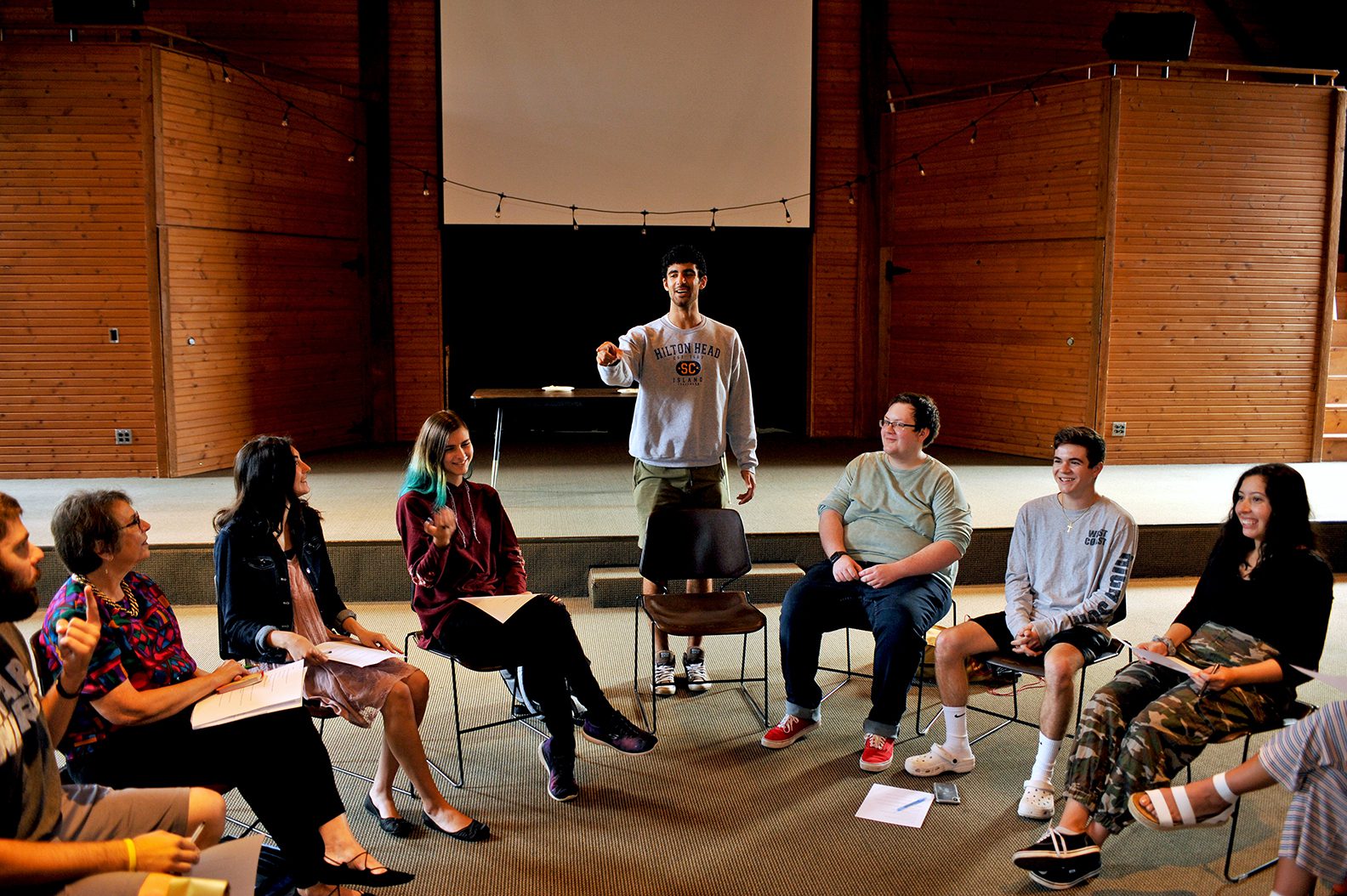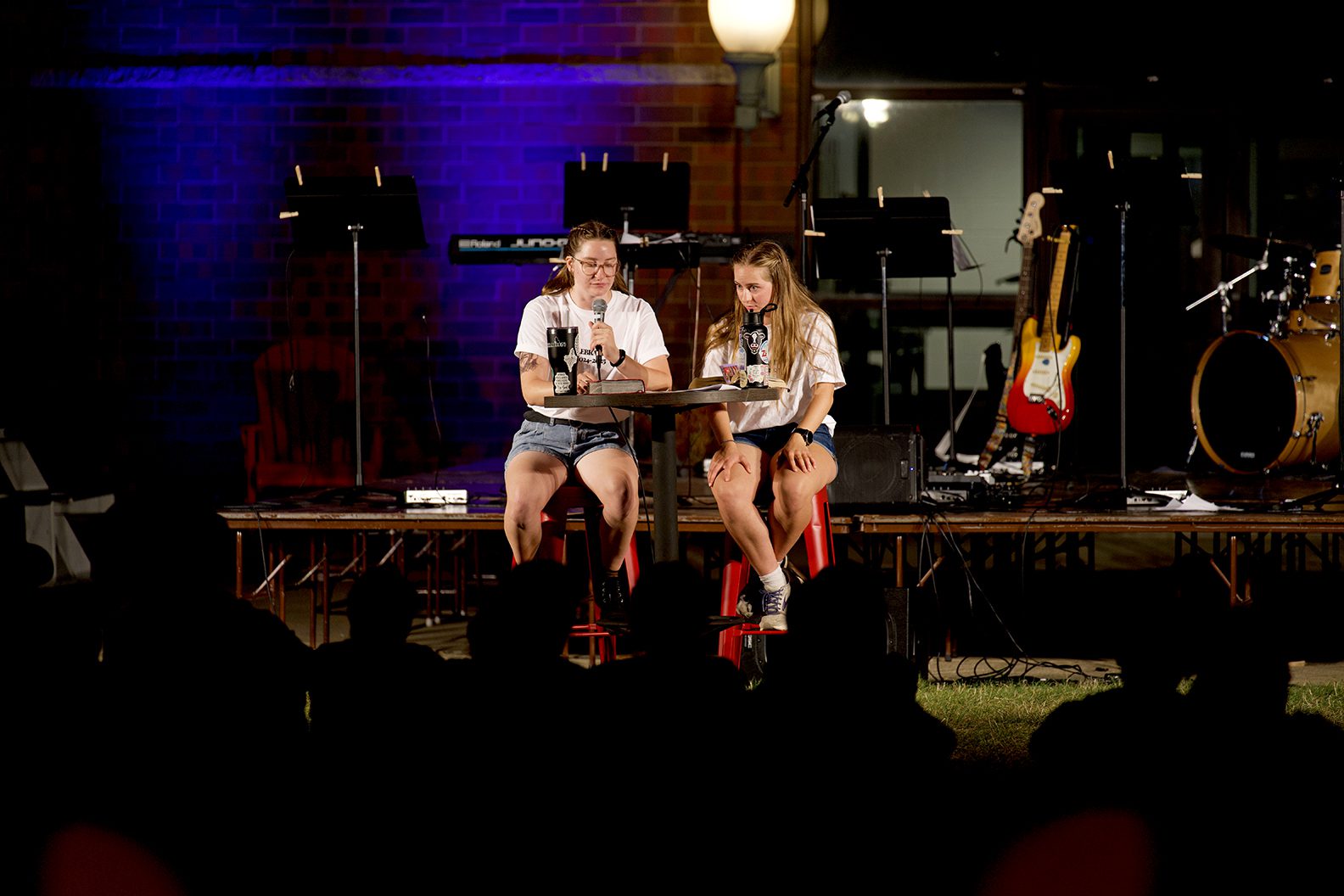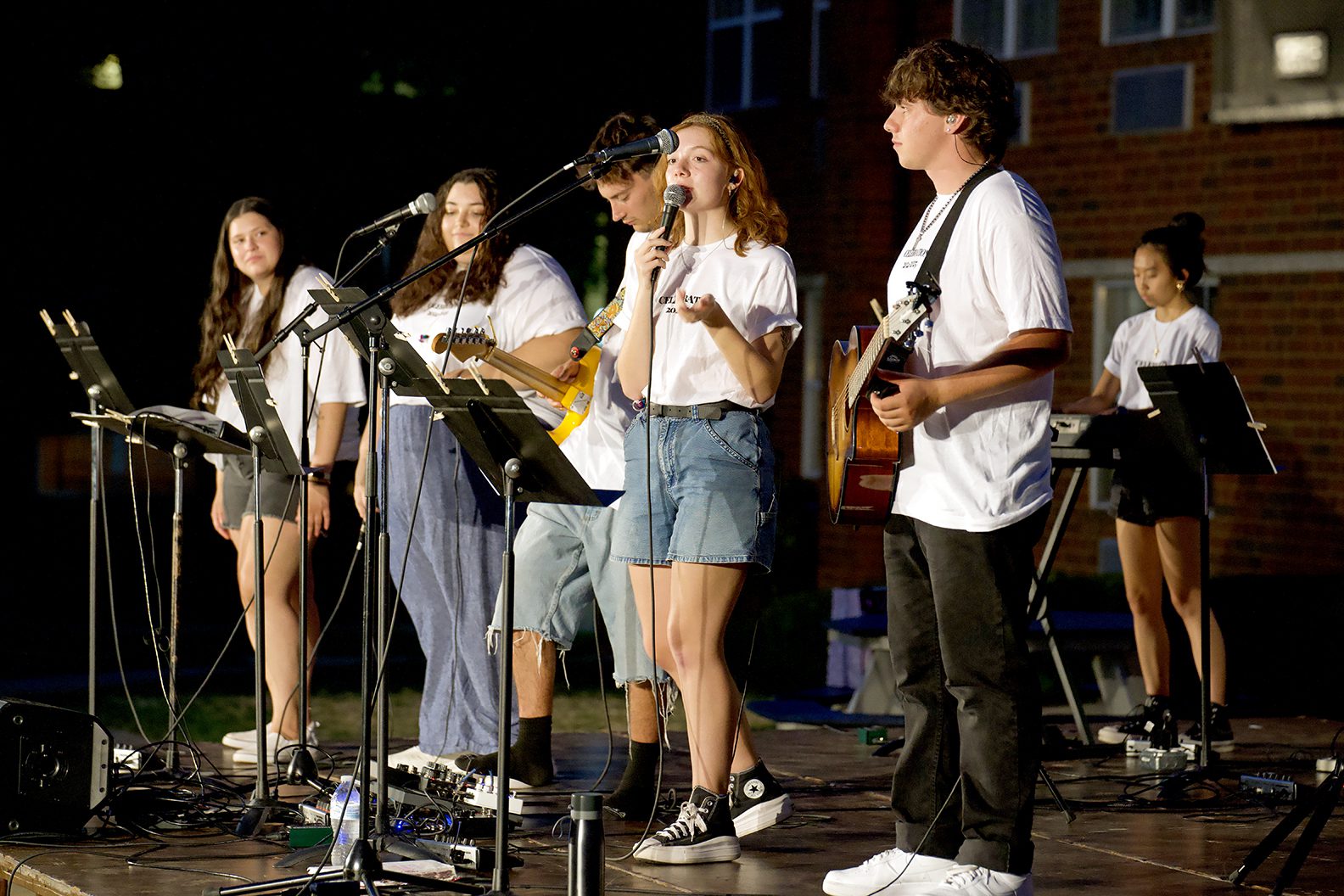
Ministry
Turn passion into action with Malone’s ministry program
Do you feel that burning desire to share God’s love with the world? If so, you’re likely feeling called to serve as a pastor, missionary, or youth leader within the Church. Malone University’s ministry degree equips you to fulfill your calling with a powerful blend of faith, academic excellence, and real-world experience you’ll be challenged to find elsewhere.
Through in-depth engagement in spiritual, intellectual, and professional development opportunities, you’ll be well-prepared to provide Christ-like servant leadership for the communities you’re called to love and serve in Jesus’ name.
Join Our Contact List
Ohio ministry degree: Develop a strong community
and shape your ministry focus

When you study ministry with us, you’ll build strong bonds with developing Christian leaders and fit right in. You’ll be mentored by professors who are passionate about shaping future ministry leaders. You will also forge friendships with like-minded peers who also want to honor God’s important call to ministry.
In this program, you can choose from three concentration options to tailor your studies to your specific calling: pastoral ministry, youth and educational ministries, and missions & cross-cultural ministries.
- Internships connect you with church leaders, non-profits, overseas mission opportunities, and more
- Study under professors from a variety of Christian denominations and backgrounds
- The Center for Christian Faith & Culture provides ongoing training and leadership development for area churches and other key institutions.
Jobs and career paths with a ministry degree
Students enrolled in Malone’s ministry program experience a combination of faith, theory, and practical skills through internship opportunities that prepare them for roles like:
- Youth Pastor
- Educator
- Military Chaplain
- Prison Ministry
- Worship Leader
- Hospital Chaplain
- Global Missionary
- Parachurch Leader
Program Distinctives
Learn from the best
Our professors are also trained practitioners and pastors in current church and service settings
Develop real world spiritual rhythms
Class sessions are often punctuated with moments of spontaneous prayer, current ministry problem-solving examples, and pastoral approaches to life and ministry concerns.
Prepare for graduate school
Malone grads have gone on to study at the most reputable universities in the world, including Harvard, Princeton, Duke, and Oxford.
Ministry Internship Opportunities
All students in the ministry program are required to earn internship credit. This connects them with various types of ministry and service projects, as well as practitioners in the field.
Besides church internships in youth ministry, children’s ministry, worship ministry, and pastoral ministry, our students also work with:
- Immigrants
- Inner city youth
- Trafficking organizations

Ministry Minors
Have you chosen another major but want to enhance your studies with a ministry minor? You can do that at Malone!
Want to supplement your ministry major with other skills to help you serve others in unique ways? Broaden your skillset so you can be equipped for service in the Church, community, and world.
Bible and Theology minor
With Malone’s Bible & Theology program, you’ll learn more than how to study Scripture. The deep knowledge you’ll gain will equip you to make real-world impact. Don’t just study the Bible—live it, lead with it, and let it transform the world through you.
Global and International Studies minor
Malone’s global and international studies minor prepares you to interact with our interconnected world from a Christian perspective, emphasizing a commitment to serving the Church, community, and society as a whole. This interdisciplinary program is crafted to enhance your main area of study, broadening your knowledge in a specific field while integrating a global outlook.
Music minor
Sharpen your skills as a musician in our music minor, where you can prepare to lead worship in high church and contemporary worship settings. Whether you sing or play an instrument, you’ll be equipped with the in-demand skills that today’s churches need.
Selected courses in this program
- MIN 372 – Recruiting, Engaging, and Leading Volunteers
- THEO/HIST 366 – History of Christian Missions and World Christianity
- MIN 205 – Ministry with Adults and Families
- MIN 323 – Evangelism and Discipleship in the New Testament
- MIN 234 – Evangelism and Discipleship of Youth
- MIN 331 – Models of Youth Ministry
- BIBL 201 – Hermeneutics
- BIBL 300-400 Old Testament
- BIBL 300-400 New Testament
Faith Integration
The ministry program will prepare you to serve Christ’s kingdom by ministering to the Church and the world. No matter which concentration you choose, you will be prepared to walk alongside others in their faith journeys in a variety of ministry contexts or for graduate studies in ministry of any kind.
Apply to Malone’s ministry program
Ready to answer The Call? Immerse yourself in a vibrant Christian community where your faith flourishes. Our professors will guide you on a journey of understanding Scripture and learning to serve God’s people in ways you never thought were possible.
Apply to Malone’s ministry degree program today!

